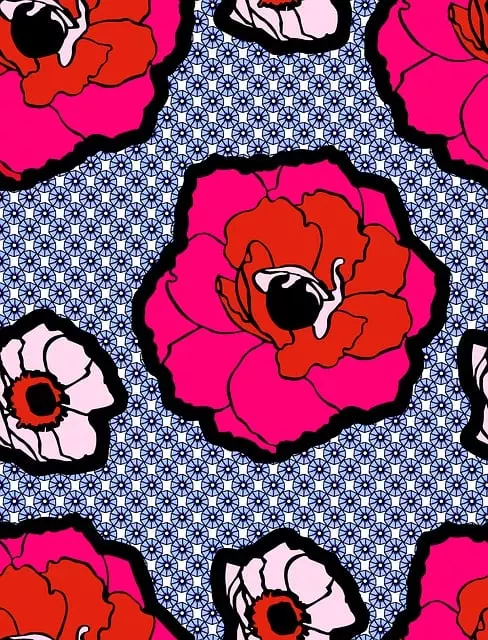Kratom, a plant from Southeast Asia, contains alkaloids like mitragynine and 7-hydroxymitragynine that interact with opioid receptors to offer pain relief and muscle recovery benefits, particularly for addressing post-exercise soreness. Its analgesic and anti-inflammatory effects are drawing attention as a natural alternative to traditional pain medication. Beyond its well-known effects on pain management, preliminary research suggests that kratom may also encourage hair growth and potentially help with hair loss issues. This is attributed to the compounds in kratom that might stimulate hair follicles and enhance scalp circulation, key factors for healthy hair growth. However, it's important to approach kratom use with caution due to its potency and the need for further scientific research to understand its mechanisms fully. Individuals interested in exploring kratom for its hair regrowth properties should consult healthcare professionals given the lack of definitive evidence and potential health implications. Kratom holds promise as a natural remedy that might help with both muscle soreness relief and hair growth, but prudent use under professional guidance is advised to mitigate risks and optimize potential benefits.
Muscle soreness can be a persistent issue for many, often hindering exercise routines and daily activities. In this article, we explore how kratom, traditionally known for its pain-relieving properties, may also play a role in muscle recovery and even hair regrowth. We delve into the scientific underpinnings of kratom’s effects on muscle soreness relief and its potential benefits for hair health. Understanding the safe and effective usage of kratom for these purposes is crucial for those seeking natural remedies to enhance their well-being, particularly in addressing post-exercise pain and promoting hair growth. Join us as we navigate the intricacies of kratom’s multifaceted benefits.
- Understanding Kratom's Role in Alleviating Muscle Soreness and its Potential for Hair Regrowth
- The Science Behind Kratom: Effects on Muscle Recovery and Hair Health
- Safe Usage of Kratom for Muscle Soreness Relief and Encouraging Hair Growth
Understanding Kratom's Role in Alleviating Muscle Soreness and its Potential for Hair Regrowth

When exploring the relationship between kratom and muscle soreness relief, it’s essential to understand the plant’s alkaloids, primarily mitragynine and 7-hydroxymitragynine, which are believed to interact with the body’s opioid receptors. This interaction can help modulate pain signals, leading to potential relief from muscle soreness. Kratom is often cited by users for its analgesic properties, which may be particularly effective after intense physical activity or in cases of chronic pain. The plant’s ability to alleviate discomfort makes it a subject of interest for individuals seeking natural alternatives to pharmaceutical painkillers.
In addition to its potential role in managing muscle soreness, kratom has garnered attention for its possible impact on hair health. Some studies suggest that certain compounds found in kratom leaves may promote hair growth and contribute to the prevention of hair loss. The mechanism behind this effect is not yet fully understood, but it is thought that these compounds could stimulate the follicles and improve blood circulation to the scalp, which are both critical for healthy hair growth. Users interested in kratom’s effects on hair regrowth should approach its use with caution and consult healthcare professionals, especially given the need for further research to confirm these potential benefits.
The Science Behind Kratom: Effects on Muscle Recovery and Hair Health

Kratom, a plant originating from Southeast Asia, has been the subject of increasing interest due to its various pharmacological effects. Alkaloids within kratom, chiefly mitragynine and 7-hydroxymitragynine, are believed to interact with the body’s opioid receptors, offering pain relief and anti-inflammatory properties that can aid in muscle recovery after intense physical activity or injury. The analgesic action of kratom helps alleviate the soreness associated with muscle exertion by modulating the signal transduction pathways responsible for pain sensation. Additionally, its anti-inflammatory effects are beneficial in reducing the swelling and tenderness that often accompany muscular strain.
Beyond its well-documented impact on muscle health, kratom has garnered attention for its potential role in hair health. Emerging research suggests that certain compounds in kratom may stimulate hair follicles, offering a promising avenue for those experiencing hair loss. The alkaloids’ anti-inflammatory properties might also address the scalp conditions that can contribute to hair thinning or loss. While the science is still evolving and more human studies are required to fully understand the extent of kratom’s efficacy in this area, preliminary findings are hopeful for individuals seeking natural ways to encourage hair growth and potentially have kratom hair loss grow back. It is important to approach the use of kratom with caution, as it can have potent effects and interactions with other substances; therefore, consulting healthcare professionals is advisable before incorporating kratom into one’s health regimen.
Safe Usage of Kratom for Muscle Soreness Relief and Encouraging Hair Growth

Kratom, a tropical tree native to Southeast Asia, has garnered attention for its potential in alleviating muscle soreness and even promoting hair growth. When it comes to using kratom for muscle soreness relief, safety is paramount. The active compounds found in kratom leaves, mitragynine and 7-hydroxymitragynine, interact with the body’s opioid receptors, which can help manage pain levels. To ensure safe usage, it is crucial to adhere to recommended dosages and to consult with a healthcare provider before incorporating kratom into your regimen. This is especially important for individuals with pre-existing health conditions or those taking other medications. Additionally, the method of consumption should be carefully considered; powders, capsules, or teas are popular forms, each offering a different onset and duration of effects.
Furthermore, recent studies have indicated that certain strains of kratom may also support hair growth, which is an area of growing interest for those experiencing hair loss. The mechanisms behind this effect are still being researched, but preliminary findings suggest that kratom’s anti-inflammatory and antioxidant properties contribute to a healthier scalp environment, potentially encouraging hair to grow back. As with any treatment for hair loss, it is important to maintain realistic expectations and to combine kratom use, if appropriate, with other holistic or medical interventions as advised by a healthcare professional. Safe usage and proper dosing are critical to ensure both the relief of muscle soreness and the promotion of hair growth without adverse effects.
In conclusion, the potential benefits of kratom for both muscle soreness relief and its role in supporting hair regrowth present a compelling dual-purpose natural remedy. As evidenced from the scientific exploration of its mechanisms, kratom’s alkaloids may play a significant role in facilitating muscle recovery and nourishing follicles to promote hair growth. It is imperative, however, to approach its use with caution, adhering strictly to safe usage guidelines to avoid adverse effects. For individuals seeking natural avenues for muscle relief and those hoping to address hair loss, kratom may emerge as a promising option that merits further scientific scrutiny. Those interested in exploring kratom as part of their health regimen should consult with healthcare professionals to ensure its compatibility with their overall wellness plan.






